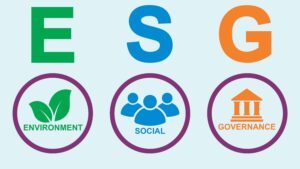
Corporate Social Responsibility (CSR) reports are a form of early corporate disclosure of their social and environmental impacts. However, as investors and stakeholders increasingly demand transparency and accountability from companies, many are shifting towards a more comprehensive and systematic disclosure approach, namely ESG reporting.
What is ESG report?
ESG report is an abbreviation for Environmental, Social, and Governance report. This report not only covers the efforts of enterprises in environmental protection, such as carbon emissions and resource utilization, but also covers social impacts such as employee welfare, supply chain labor conditions, as well as corporate governance structure, leadership diversity, and anti-corruption measures.
The advantages of ESG reporting
Improving Transparency: ESG reporting can enhance the transparency of companies and increase the trust of stakeholders by disclosing detailed data and performance in environmental, social, and governance aspects.
Risk management: Identifying and disclosing potential ESG risks helps businesses take proactive measures to avoid losses caused by overlooking these risks.
Attracting investment: More and more investors tend to invest their funds in companies that prioritize sustainable development. By releasing ESG reports, companies can attract this portion of funding.
Enhancing brand value: Effective ESG reporting not only helps to increase a company's brand value, but also enhances its competitiveness in the market.
How to write an ESG report?
Writing an ESG report is not a simple process, as companies need to have a comprehensive understanding of their operational status and conduct detailed data collection and analysis. Here are some key steps:
Determine the scope of the report: Identify which ESG factors are the most important and relevant in the company's business activities.
Data collection and analysis: Systematically collect and analyze data related to the environment, society, and governance.
Stakeholder engagement: Ensure that the voices and needs of stakeholders are reflected in the report.
Reporting framework and standards: Adopt globally recognized reporting standards such as GRI (Global Reporting Initiative) and SASB (Sustainable Accounting Standards Board).
